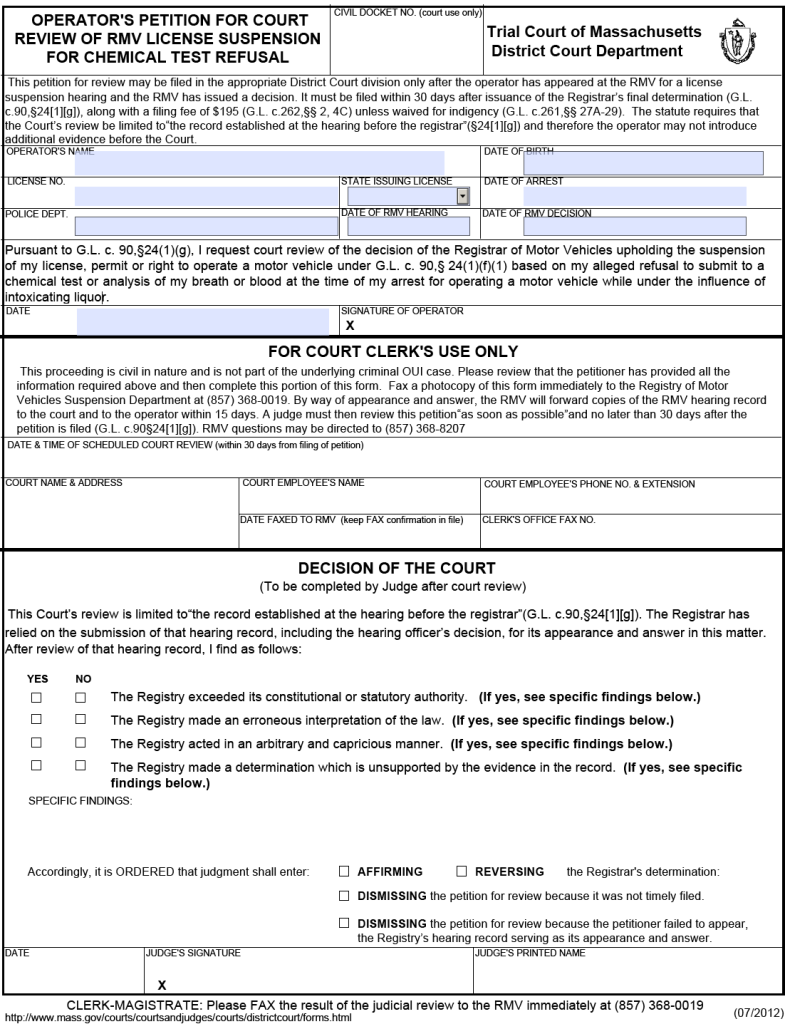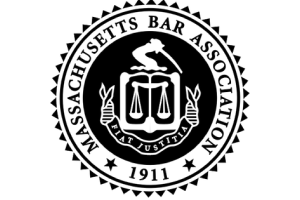Refusing a Breath Test
Top Rated Lawyers for Breath Test Refusal Defense
Have you been pulled over for suspicion of drunk driving? Did the officer ask you to submit to a breath test, and did you refuse? Most drivers understand that a breath test failure will likely result in OUI/DUI charges. If a person chooses to decline to submit to a chemical test related to a drunk driving arrest in Massachusetts, the most direct impact that the driver will face is the immediate suspension of his or her privilege to drive. The length of the suspension is dependent on whether the alleged test refusal is a first-time or repeat offense. The law governing suspensions is buried in G.L. c. 90, section 24 – the general OUI statute which we have describe elsewhere as “monstrous” and “infamously unintelligible”.
For instance, in a first-time test chemical test refusal case, a driver’s license is automatically suspended for 180 days. Lengthier suspensions will be imposed for repeat offenses. The driver has 15 days after a DUI arrest to request a hearing with the Registry of Motor Vehicles to challenge the suspension. Therefore, it is crucial to speak with an experienced breath test refusal defense attorney as soon as possible after your arrest.
Length of refusal suspensions
- first-time offense suspension of 180 days
- second offense suspension of 3 years
- third offense suspension of 5 years
- fourth or greater offense suspension for life
Comprehensive Representation for Test Refusal Allegations
Challenging the breath test suspension requires detailed analysis, and investigation of all records obtained at the time of the arrest. The regulation governing the hearing is 540 CMR 11.00. It is a misperception that the state will not pursue drunk driving charges against a person who has refused a breath test. It is therefore vital to protect your rights, as a criminal case alleging drunk driving is likely in a breath test refusal case. The prosecutor may call the arresting officer to testify as to his or her observations concerning your driving conduct and interactions during the traffic stop to support the government’s theory of impairment. You need a lawyer who will comprehensively protect your rights.
If after a refusal hearing your breath test suspension remains in place, you have a right to further review by filing a petition with the trial court. We can help you at that hearing as well. That hearing is limited to determining whether the Registry 1) exceeded its constitutional or statutory authority; 2) made an erroneous interpretation of the law; 3) acted in an arbitrary and capricious manner; or 4) made a determination which is unsupported by the evidence in the record.

Attorneys Murat Erkan and Ryan P. Sullivan have substantial experience with OUI cases in Massachusetts. When you schedule an initial consultation, you will meet face to face with a former prosecutor who knows how the government attorneys think. We will analyze your situation as skilled criminal defense lawyers with prior experience building drunk driving cases and will provide straightforward advice on how to best protect your rights, with a strong emphasis on your personal goals.
Cinderella License
There is no hardship license or “Cinderella” license available for breath test refusal suspensions. Under the law, hardship licenses are available only for any eventual suspension following conviction or admission to an OUI offense. The practical effect of this is that if your license is suspended for a chemical test refusal, you have to serve that suspension in full before you can even apply for a hardship license.
There is one exception to this rule, and one that can be of serious benefit to certain individuals whose number one priority is getting back on the road as quickly as possible. If the OUI case is resolved quickly with an admission or a guilty plea, and the person signs up for the court ordered classes, they are eligible to petition the RMV for a hardship license to take effect immediately – that means during the breath test refusal suspension. By pursuing this strategy, drivers are able to get back on the road as soon as three days after their arraignment. This strategy is obviously not for everyone, but if the only thing that matters is getting back on the road, this is an effective strategy to accomplish this goal.
Schedule Your Consultation With a Skilled Trial Lawyer
To contact a knowledgeable attorney for breath test refusal defense who will zealously guard your rights, call Erkan & Sullivan at (978) 474-0054 or send an email today.





